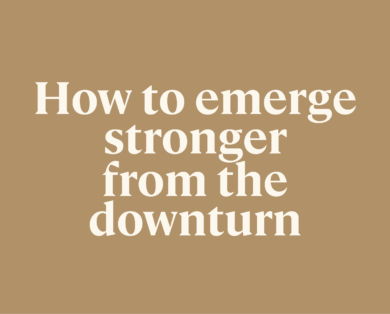- 24 July, 2024
Consider these benefits when choosing between VC firms
There’s a new person in your life. They’re probably sporting business casual. They’re probably standing awkwardly next to the coffee machine in the kitchen of your startup trying (and failing) to make small talk with your backend server team.
The primary reason startups take venture capital is because of just that – the capital. But entrepreneurs should expect their investors to bring a whole lot more than just money to the table. Every entrepreneur should expect their venture investors to bring seven main benefits to the table.
If you already have venture investors, you can use this article ‘as-is.’If you are currently considering fundraising, ask prospective investors if they are able to support you in the key areas listed below.
If they cannot, ask yourself if you’re talking to the right people.
Entrepreneurs should expect their investor to bring a whole lot more than just money to the table.
1. THE LONG HAUL
Mileage may very, but you can assume that your Series A venture investors will be on your board for five to nine years. That’s about the same length as the average marriage in the US. In other words, it’s a long time. This means you need to build a relationship.
Like any relationship, you need to start with a positive attitude and work to dispel any niggles in the early days. I’ve seen entrepreneurs immediately slap a new investor with unexpected terms after a term sheet is signed. I’ve seen investors turn up to the first board meeting and demand that every aspect of the business is run a different way, before they attempt to understand the company’s current cadence.
My advice to both is: go slower; there’s plenty of time. You should take that time.
2. THE NETWORK
Venture capitalists tend to be networking machines. Their success often depends on it, and the day-to-day reality of their work means that they meet up to 10 new people every day.
In addition to this sheer level of ‘exposure’, VCs occupy a unique position as a ‘gateway’ to new technology and cutting-edge industry trends. This means that they are usually able to lean on people they don’t know and often get a meeting if needed.
Before every board meeting or conversation, think of who you need to meet. Use LinkedIn and discover who your investor knows, and ask them to put you in touch. As an entrepreneur, you should exploit this network unashamedly!
3. THE NEXT ROUND
It may seem early, but at some point, you may have to raise another investment round. This may be another private, venture round or a public offering. As most investors focus on particular ‘stages’ of investment (seed, Series A etc), they are likely to have worked with companies at a similar stage to yours, who went on to raise additional funding.
Use that experience. Ask your investor what your next investor is likely to look for. Ask for access to presentations that worked well in the past (assuming confidentiality can be lifted or sensitive information redacted), and – most importantly – before you start your next fund-raise process, ask to present to your existing investors. Their feedback will be invaluable.
I’ve had a couple of portfolio companies miss this opportunity, and I won’t let another make this mistake.
4. THE CRITICAL HIRE
The typical venture investor usually has a slightly higher level of understanding of any given company. Therefore, venture investors are genuinely rather good at painting the big picture of the company.
This can be super-useful when convincing that critical, senior hire to join your company. This is one of my personal favourites. I’ve helped a number of CEOs on this, and nothing feels more awesome than knowing you’re helping build the team.
5. THE CRITICAL SALE
Similar to above, sometimes you will have a large potential customer who needs some extra reassurance from someone who, ultimately, has your company’s (financial) back. I have found this to be especially crucial for enterprise software companies.
As you can imagine, if you’re selling your solution to a large corporate customer, they often need convincing that you are not going to go bust in the next year. Your investor is often the most authoritative voice on this topic.
6. THE COUNSELLOR
No investor or board member can tell you what to do. That is the great (and also terrifying) thing about being a CEO. The buck, ultimately, stops with you.
However, a good investor is an experienced soul and will have been through many similar trials and tribulations that you find yourself battling against. Some will have done it all before themselves – which is one of the reasons our firm has always had a healthy balance of entrepreneurs on the team – and others will have seen it as an investor with other CEOs. The good investors spot the patterns and are able to be a thoughtful and engaged listener as you talk through an issue and decide how to deal with it.
On a human level, this can be a rewarding part of the investor/founder relationship – of course, there are many conversations on things like pricing strategies, marketing ideas or human resource issues, but the most memorable conversations are always personal. Dealing with an employee who is facing a difficult situation at home, working through the tough steps that need to be taken when a founder exits a company, and confronting failure – whether this is of a person, a team, a product or even the whole company. These things are tough, but they all happen, and a good investor will be by your side when you confront them.
7. THE EXIT
Whether you’re selling to another company or taking your company public (which may or may not really be an exit in itself) good investors will have experience of this. Again, the best firms will have a mixture of people who have done it with others, and those who have done it themselves. I took my company public so I can talk people through my experience on a personal level, but one of my partners advised on over $500B of IPOs and M&As over his career as a banker which gives him an entirely different perspective on the process.
Great firms will have investors with deep experience in this area and be able to bring it to bear when you hit that point of your company’s progression.
The best entrepreneurs are resourceful beings who pull in whatever they can from those around them. While that has to be balanced in the case of, say, employees, where there is an obvious power differential, I always encourage CEOs to exploit their venture investors. Let’s be honest, we are perfectly capable of taking care of ourselves!
Of course, the investor starts by providing the capital your company needs to grow, but the right kind of investor should deliver a whole lot more too.










